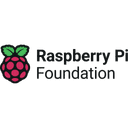Master effective pedagogical approaches for teaching programming to primary school students aged 5-11 using block-based languages.
Master effective pedagogical approaches for teaching programming to primary school students aged 5-11 using block-based languages.
This comprehensive course explores pedagogical strategies for teaching programming to primary school children. You'll examine various teaching approaches including unplugged methods, Use-Modify-Create, and Parson's Problems. The curriculum covers essential programming concepts like sequence, variables, selection, and iteration, while incorporating pedagogical frameworks such as Bloom's taxonomy, semantic waves, and cognitive load theory. You'll learn to design effective lessons using different levels of abstraction and evaluate various teaching approaches. The course emphasizes practical application, allowing you to reflect on and enhance your teaching practices through structured learning activities and lesson planning.
Instructors:
English
English
What you'll learn
Apply various pedagogical approaches for teaching programming
Master key programming concepts for primary education
Design effective learning sequences using semantic waves
Implement different scaffolding techniques in programming lessons
Create comprehensive lesson plans incorporating multiple pedagogies
Evaluate teaching approaches for classroom effectiveness
Skills you'll gain
This course includes:
PreRecorded video
Graded assignments, Exams
Access on Mobile, Tablet, Desktop
Limited Access access
Shareable certificate
Closed caption
Get a Completion Certificate
Share your certificate with prospective employers and your professional network on LinkedIn.
Created by
Provided by

Top companies offer this course to their employees
Top companies provide this course to enhance their employees' skills, ensuring they excel in handling complex projects and drive organizational success.





There are 9 modules in this course
This course focuses on developing effective teaching strategies for primary school programming education. It covers essential pedagogical approaches including unplugged activities, guided exploration, and targeted tasks. The curriculum integrates key educational theories like Bloom's taxonomy and SOLO with practical programming concepts. Teachers learn to create semantic waves in their lessons, implement various scaffolding techniques, and use the Use-Modify-Create approach. The course emphasizes both theoretical understanding and practical classroom application.
Pedagogical content knowledge
Module 1
Bloom's taxonomy and SOLO
Module 2
Semantic waves
Module 3
Instructivist and constructivist learning theories
Module 4
Continuum of scaffolding
Module 5
Levels of abstraction
Module 6
Programming concepts: sequence, repetition, variables, and selection
Module 7
Using guided exploration and targeted tasks
Module 8
Teaching programming using 'Use-Modify-Create'
Module 9
Fee Structure
Instructor

3 Courses
Educational Technology Specialist and Teacher Training Expert
Ben Hall serves as a Learning Manager at the Raspberry Pi Foundation where he specializes in developing comprehensive training resources to enhance teachers' computer science and IT capabilities His professional journey includes significant experience as a primary school teacher where he led and specialized in computing education while also managing a support network for fellow educators through regular training sessions and meetings At the Raspberry Pi Foundation he has been instrumental in creating curriculum resources and online training courses focusing on programming pedagogy and computing education His work includes exploring innovative teaching methods such as using CRC cards to improve programming design and contributing to educational research particularly in areas of programming instruction for young learners He has presented at educational conferences including the Workshop in Primary and Secondary Education WiPSCE where he has shared insights on improving programming education He demonstrates particular expertise in bridging industrial solutions with educational challenges drawing from research to develop practical teaching strategies His passion centers on making computing education accessible and enjoyable for all teachers and students regardless of their backgrounds emphasizing the importance of design in programming education and developing practical strategies for classroom implementation His contributions to educational resources and teacher training programs continue to shape how computing is taught in primary schools
Testimonials
Testimonials and success stories are a testament to the quality of this program and its impact on your career and learning journey. Be the first to help others make an informed decision by sharing your review of the course.
Frequently asked questions
Below are some of the most commonly asked questions about this course. We aim to provide clear and concise answers to help you better understand the course content, structure, and any other relevant information. If you have any additional questions or if your question is not listed here, please don't hesitate to reach out to our support team for further assistance.


